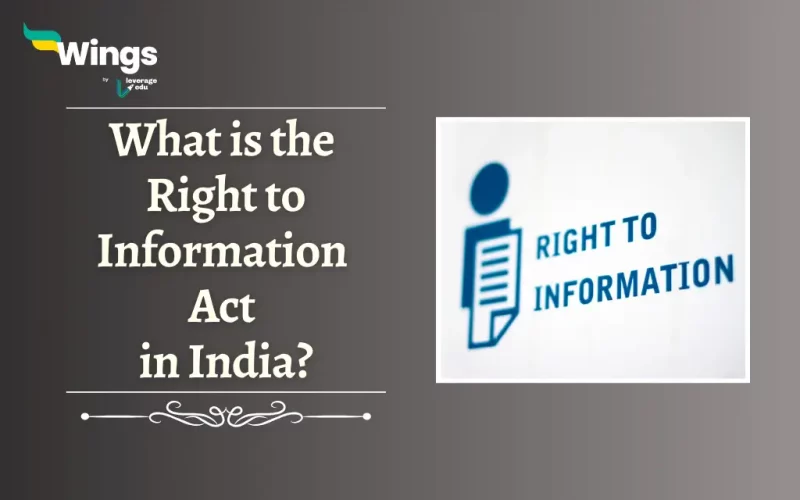The Right to Information Act was enacted in 2005 and is a milestone legislation that gives power to Indian citizens to get information under the control of public authorities. Furthermore, the Right to Information Act encourages transparency and accountability in the functioning of the Government. Additionally, the RTI Act allows you to request information from government bodies about their policies, decisions, and expenditures. Read on to learn more in detail about the Right to Information Act, when the RTI Act was passed, the Benefits of the Act and the information that cannot be accessed by citizens.
Table of Contents [show]
The Right to Information Act was passed in?
The Right to Information Act was passed in 2005. Before 2005 access to government information was restricted.
- In addition, the RTI Act changed this by establishing a framework for us Indian citizens to formally ask for information.
- This law helps people get information from the government easily.
- Consequently, it makes sure that government offices are open about what they do and how they spend taxpayer’s money.
- It also creates groups like the Central Information Commission to handle issues related to this law.
- Moreover, this Right plays an important part in strengthening our nation’s Democracy as it promotes informed public participation.
| Right to Information Act of 2005 | |
| Enacted | 15th June, 2005 |
| Assented | 22nd June, 2005 |
| Commenced | 13th October, 2005 |
Benefits of the Right to Information Act
Furthermore, the RTI Act provides many benefits, such as:
- Transparency: Citizens can hold the government accountable by analysing its actions as well as decisions.
- Combating Corruption: Transparency thus reduces opportunities for corruption and misuse of our public funds.
- Empowerment: Moreover, citizens can access information relevant to their lives, such as land records or social welfare schemes.
- Improved Governance: Public authorities are forced to maintain better records and function more efficiently.
Also Read: Article 21: Right to Life and Right to Personal Liberty
Which Information cannot be given in RTI?
Additionally, here is the information that cannot be given under RTI:
- Information harming national security or strategic interests: Information connected to defence, intelligence operations, or foreign affairs that could hinder our nation’s security.
- Commercial confidentiality: Information that could harm a third party’s competitive position, like trade secrets or commercially sensitive data, is usually excused.
- Personal information without public interest: Personal details of people especially if unrelated to any public activity or interest, cannot be disclosed to protect privacy.
- Information affecting investigations: Information that could restrict ongoing investigations or law enforcement activities is usually withheld.
- Information not held by the Public Authority: If the information you request is not held by the specific department you filed the RTI with, they cannot provide it.
Related Blogs
Lastly, we hope you liked our blog and gained an understanding of the What is Right to Information Act in India. Moreover, you may even read more blogs and empower yourself with knowledge regarding Civics and Polity!
 One app for all your study abroad needs
One app for all your study abroad needs















 45,000+ students trusted us with their dreams. Take the first step today!
45,000+ students trusted us with their dreams. Take the first step today!
